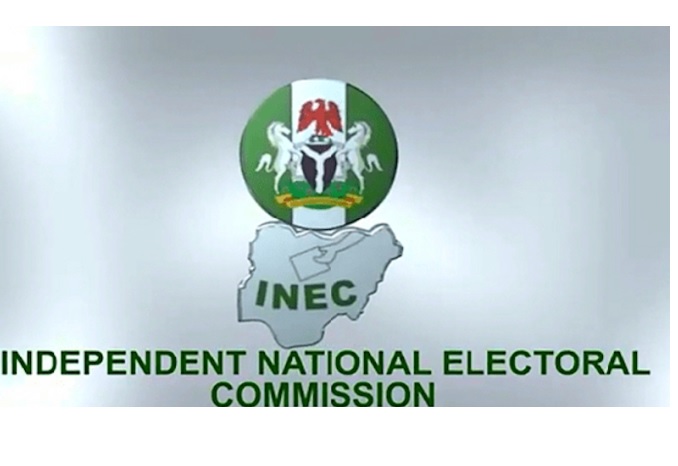Electoral bodies have been set up at different times in the course of Nigeria’s history after Independence in 1960. The Electoral Commission of Nigeria (ECN) was the first electoral body established in 1959 to oversee and coordinate the election of 1959 that ushered in Post-Independence democracy. Subsequently, there have been other electoral bodies established with the charge and mandate of overseeing, planning and implementing the electioneering process, to conduct elections with core values of honesty, dedication, transparency and impartiality guiding their operations aimed at the sustenance of the democracy of Nigeria.

This is a list of electoral bodies in Nigeria since Independence:
-
Federal Electoral Commission
The Federal Electoral Commission was chaired by Mr. Eyo E. Esua. The commission conducted and oversaw the Federal and Western regional elections of 1964 and 1965 respectively. After the 1996 Coup d’etat that led to the military seizing power, the Federal Electoral Commission ceased to exist. It was until 1976, after the electoral committee set up the General Olusegun Obasanjo military administration, that Michael Ani was appointed to monitor the polls that would usher the Nigerian Second Republic. With Michael Ani at the reins of the Federal Electoral Commission, the Commission organized, monitored, and oversaw the 1979 election which ushered in the Nigeria Second Republic.
Victor Ovie-Whiskey was appointed to serve as Chairman of the Federal Electoral Commission by Shehu Shagari’s Administration in 1980. He occupied the post until after the 1983 election that Shehu Shagari emerged as the winner of the Presidential election, again.
-
National Electoral Commission of Nigeria
The National Electoral Commission of Nigeria was first chaired by Professor Eme Awa from 1987 to 1989. Prof. Eme Awa conducted the 1987 Local Government Area elections. Professor Eme Awa resigned from the position of Chairman of the National Electoral Commission of Nigeria in 1989. After the resignation of Professor Eme Awa in 1989, President Ibrahim Babaginda appointed Humphery Nwosu as Chairman of the National Electoral Commission of Nigeria. It was Humphery Nwosu that conducted the June 12 Presidential election of 1993, adjudged by many to be free and fair. He introduced the Option A4 Voting System and the Open ballot system of voting in Nigeria elections. However, he was ordered by the military regime to stop the announcement of the results and winner of the election and was subsequently dismissed. The June 12, 1993 election was annular by the Ibrahim Babaginda regime.
After the dismissal of Humphery Nwosu as Chairman of the National Electoral Commission of Nigeria, Okon Uya was appointed in June 1993 to conduct a proposed March 1994 election. However, that was not possible due to the confusion that followed the annulment crisis. When Sani Abacha assumed the position of Head of State, he removed Okon Uya as Chairman of the Commission in November 1993.
Summer Dagogo-Jack was appointed in 1994 by Military Head of State, Sani Abacha. Summer Dagogo-Jack conducted the March 1997 Local Government Elections but the elected officials were not inaugurated Is the sudden death of Sani Abacha aborted the process. Abdulsalami Abubakar’s regime dissolved the National Electoral Commission of Nigeria, and hence initiated a fresh electoral process to cater for the Nigerian Fourth Republic.
-
Independent National Electoral Commission
The Abdulsalami Abubakar regime set the ball rolling for the establishment of the Independent National Electoral Commission charged with the re-introduction of democracy and the Nigerian Fourth Republic. The first chairman of the Independent National Electoral Commission was Ephraim Omorose Ibukun Apata, appointed by Gen Abdulsalami Abubabakar’s Administration. The Ephraim Apata-chaired Independent National Electoral Commission oversaw and conducted the Local Government polls of 1998, the Gubernatorial election of 1999, and the Feb 27, 199,9 the Presidential election that ushered Olusegun Obasanjo as President of Nigeria.
In May 2000, Sir Abel Guobadia was appointed as the second chairman of the Independent National Electoral Commission. He exited the post of Chairman of the Commission in 2005. Professor Maurice Mmaduokolam Iwu was appointed as Chairman of the National Electoral Commission by President Olusegun Obasanjo in June 2005. He was dismissed from office by Acting President Goodluck Ebele Jonathan on April 28, 2010.
On June 8, 2010, President Goodluck Ebele Jonathan appointed Professor Attaihiru Muhammadu Jega to head the Independent National Electoral Commission. He successfully conducted and oversaw the 2011 and 2015 General Elections, becoming the first INEC Chairman to do so. He retired from office in June 2015.
Amina Bala Zakari was appointed by President Goodluck Jonathan to act in the capacity of Acting Chairman of the Independent National Electoral Commission from July 30 until November 9, 2015. She was replaced by Mahmood Yakubu who is the current Chairman of the Commission on October 21, 2015, after appointment by President Muhammadu Buhari. He conducted and monitored the 2019 General Elections.
In conclusion, these different electoral bodies were typically charged with functions such as; registration of political parties, registration of eligible voters, routine revision of Voters’ Register, political education, screening of candidates, and conducting of elections with qualities of transparency and impartiality. Their roles further include counting of votes, the announcement of results, provision of ballot boxes and relevant election materials, registration of candidates, supervision of voting activities, declaration of winners in election exercises as well as the issuance and withdrawal of Certificates of Return, among other functions as permissible by the Constitution. However, these electoral bodies did not wholly attain the ideals that they sought to achieve due to challenges like, political interference, inadequate security, electioneering malpractices such as rigging, vote-buying, and under-age voting as observed in several elections.